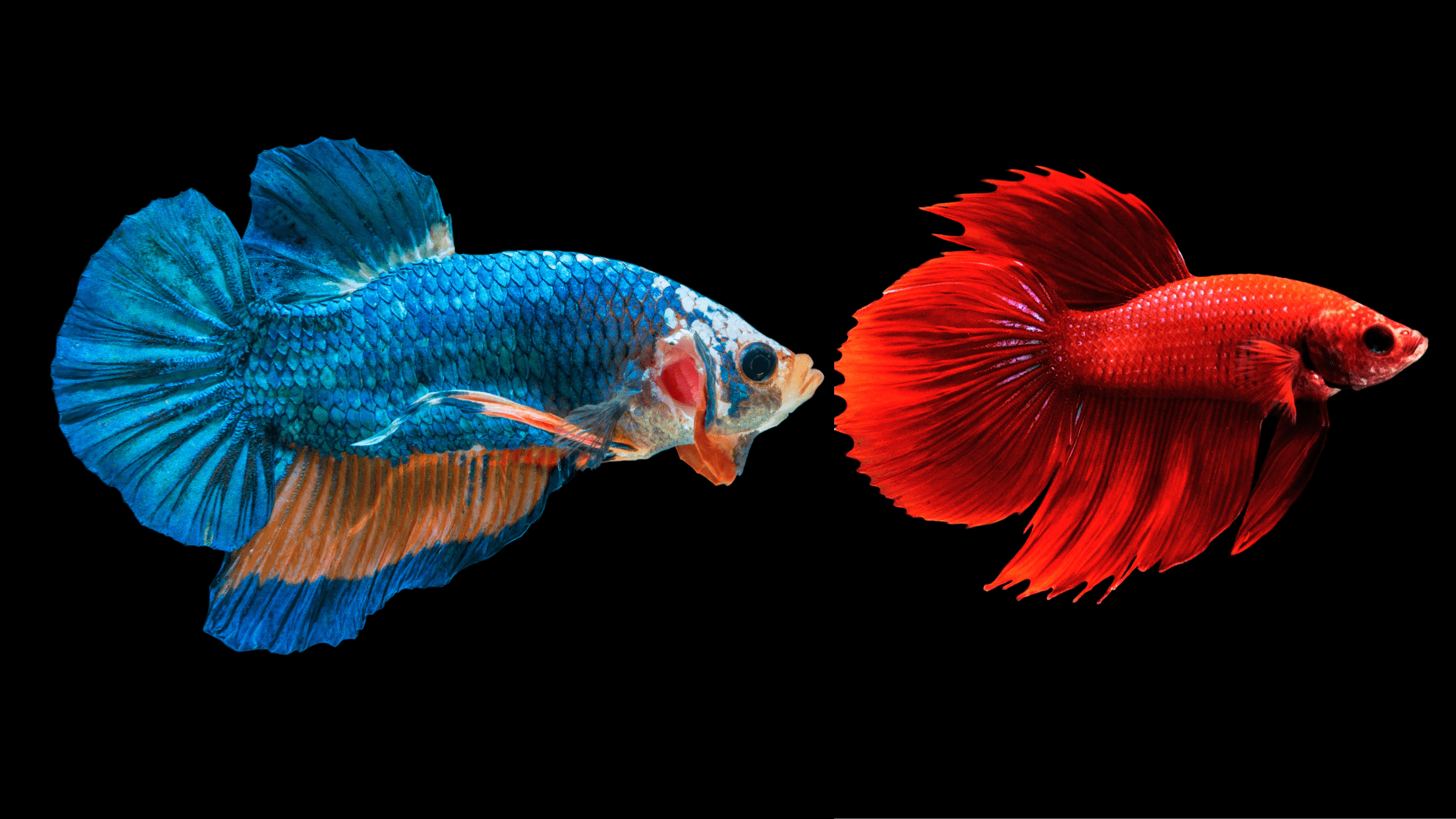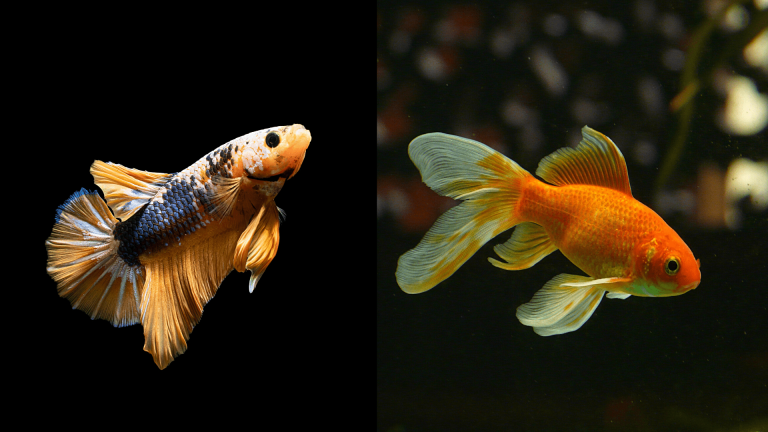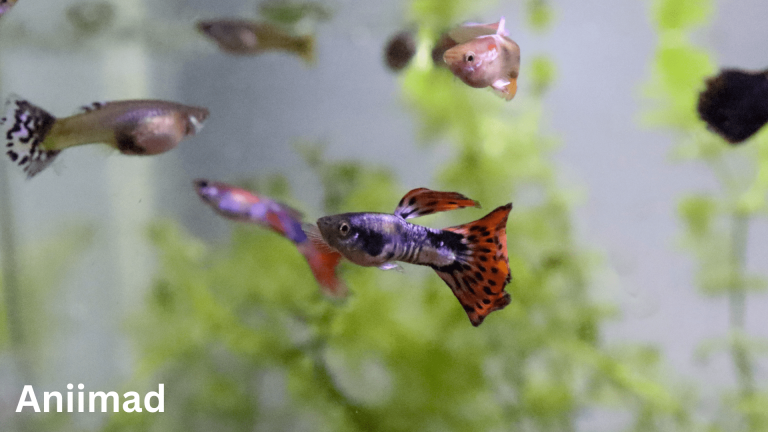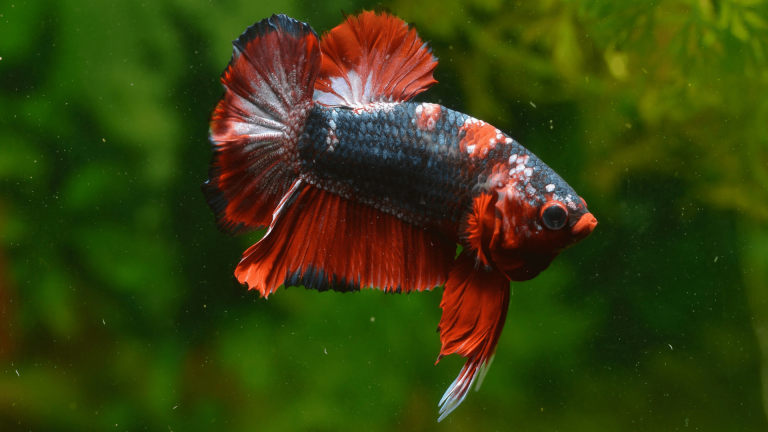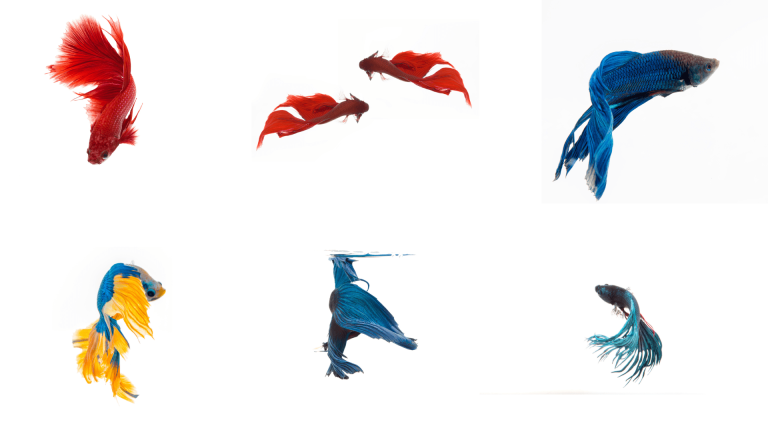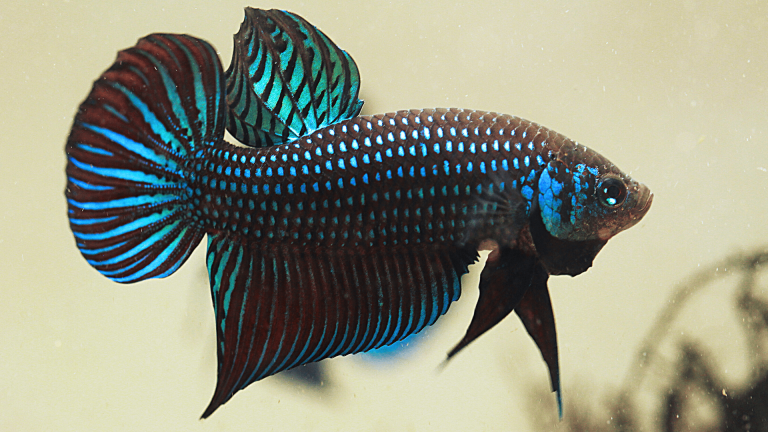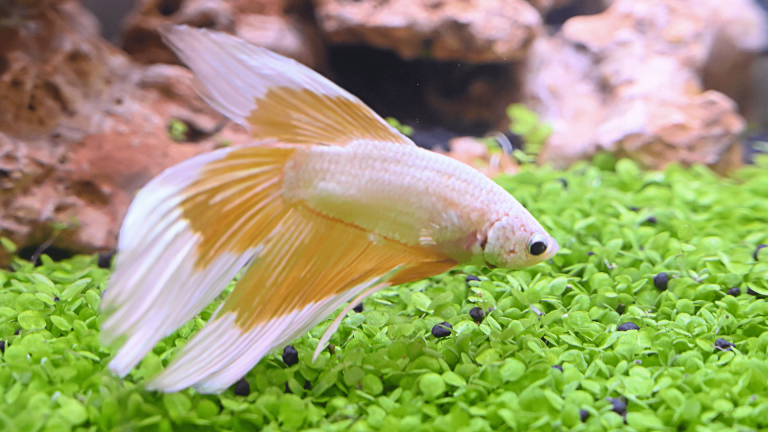Can Betta Fish Live with Other Fish? A Guide to Successful Tankmates
Contents
- 1 What fish cannot be with a betta?
- 2 Can You Mix Betta Fish With Other Fish?
- 3 Can Betta Fish Share a Fish Tank?
- 4 Can I Put Goldfish and Betta Together?
- 5 Frequently Asked Questions (FAQs) About Can Betta Fish Live With other fish?
- 5.1 Can betta fish live with other fish in the same tank?
- 5.2 What are some suitable tankmates for betta fish?
- 5.3 Can I keep two male betta fish together?
- 5.4 Can female betta fish live together in a group?
- 5.5 What size tank do I need for a betta community?
- 5.6 How should I introduce new fish to the tank?
- 5.7 Can I keep betta fish with other labyrinth fish like gouramis?
- 5.8 What should I do if my betta shows aggression towards tankmates?
- 5.9 How important is it to monitor the tank after introducing new fish?
- 5.10 Can betta fish coexist with shrimp or snails?
- 6 Can Betta Fish Live With other fish? | Amazing Betta Fish FACTS
- 7 Conclusion |Can Betta Fish Live with Other Fish?
Can Betta Fish Live with Other Fish? Find the answers you seek in this comprehensive guide. Betta fish, also known as Siamese fighting fish, are popular and stunningly beautiful freshwater fish that captivate hobbyists with their vibrant colors and graceful movements. Due to their territorial and aggressive nature, many aquarists often wonder if betta fish can live harmoniously with other fish in the same aquarium. In this article, we will explore the factors to consider, compatible tankmates, and essential guidelines to ensure a successful community tank with bettas.
What fish cannot be with a betta?
When considering tankmates for a betta fish, it’s essential to avoid species that are known to be aggressive, territorial, or have long, flowing fins that may be mistaken for another betta. Combining certain fish with bettas can lead to stress, aggression, and even injury. Below are some fish that are generally not suitable to be housed with bettas:

Other Betta Fish (Male Betta)
Male bettas are highly territorial and will likely attack and fight with each other. Keeping multiple male bettas in the same tank, except in specialized setups like a divided tank, can lead to severe injuries or death.
Gouramis
Gouramis are closely related to bettas and can display aggressive behavior, especially when housed with other labyrinth fish like the betta. They might engage in territorial disputes and lead to conflicts.
Angelfish
Angelfish can be fin nippers, and their tall, elegant fins may resemble another betta, leading to aggression from the betta. Additionally, angelfish prefer warmer water temperatures than bettas, which can create compatibility issues.
Barbs
Some species of barbs can be nippy and might harass the slow-moving and long-finned betta fish, causing stress and injury.
Cichlids
Cichlids are generally aggressive and territorial, and their behavior can lead to conflicts with the peaceful and slow-moving bettas.
Male Guppies (in small tanks)
Male guppies often have bright colors and long fins, which might trigger the betta’s aggressive response, especially in confined spaces.
Large or Aggressive Tetras
Some larger tetra species can be fin nippers and may not be compatible with bettas. Tetras like Serpae tetras, Buenos Aires tetras, and Red Eye tetras best avoid.
Rosy or Zebra Danios
Danios are fast-moving fish and can stress out the slow-moving betta.
Larger Fish
Avoid housing bettas with much larger fish, as the size difference can make the betta feel intimidated and stressed.
Remember, even with peaceful tankmates, individual fish can have unique personalities, and compatibility can vary. Always monitor your fish closely when introducing new tankmates to ensure a harmonious environment and be prepared to remove any fish showing signs of aggression or stress. Providing ample hiding spots and visual barriers in the tank can also help reduce potential conflicts. Proper research and careful consideration of tankmate choices will increase the likelihood of a successful community tank with betta fish.
Can You Mix Betta Fish With Other Fish?

Yes, betta fish can be kept with other fish in a community tank under certain conditions. While bettas are known for their territorial and aggressive tendencies, they can coexist peacefully with other fish if the tank is set up properly and appropriate tankmates choose. Here are some guidelines to consider when mixing betta fish with other fish.
Tank Size
Ensure the tank is adequately sized. A larger tank provides more space for fish to establish territories and reduces the chances of aggressive behavior.
Tank Setup
Create an environment with plenty of hiding spots, plants, and decorations. These visual barriers help reduce stress and create separate territories for the fish.
Tankmates Selection
Choose peaceful, non-nippy fish that can tolerate similar water conditions as bettas. Avoid fish with long, flowing fins that may be mistaken for another betta.
Behavior Compatibility
Research the temperament of potential tankmates to ensure they are not aggressive or territorial, which could lead to conflicts with the betta.
Schooling Fish
Consider adding small schooling fish. Bettas often do better with fish that group together and do not intrude on their territories.
Labyrinth Fish
Avoid keeping bettas with other labyrinth fish like gouramis, as they may compete for territory and resources.
Proper Acclimation
When introducing new fish to the tank, use a proper acclimation process to reduce stress and give them time to adjust to the new environment.
Observation
Monitor the tank closely after introducing new fish. If any aggression observes, be prepared to separate the aggressive fish.
Fish Personality
Keep in mind that individual fish may have different personalities. Some bettas may be more tolerant of tankmates, while others may be more aggressive.
Remember that every community tank is unique, and there are no guarantees that all bettas will get along with all other fish. Some bettas may be more compatible with tankmates than others. If the betta shows signs of stress, aggression, or constant chasing of other fish, it is best to keep them in a separate tank to ensure their well-being.
Proper research, planning, and careful observation will increase the likelihood of success when mixing betta fish with other fish in a community tank. Always prioritize the health and well-being of your fish when making decisions about tankmates.

Betta fish can share a fish tank with other fish under specific conditions. While bettas are known for their aggressive and territorial behavior, it is possible to keep them in a community tank if certain guidelines follow. Here are some key points to consider.
Tank Size
A larger tank is essential when keeping bettas with other fish. The more space available, the easier it is for fish to establish their territories and reduce potential conflicts. A tank size of at least 20 gallons recommends for a betta community setup.
Tank Setup
Create a well-planted and decorated tank with hiding spots and visual barriers. Adding live plants, driftwood, and other decorations will provide areas for fish to retreat and reduce stress.
Tankmates Selection
Choose peaceful, non-aggressive fish that are compatible with bettas. Avoid species with long, flowing fins that could be mistaken for another betta. Fish that naturally inhabit different areas of the tank (e.g., bottom-dwellers, mid-dwellers, and top-dwellers) can also help minimize territorial disputes.
Personality Consideration
Each betta has its unique personality. Some may be more tolerant of tankmates, while others may be more aggressive. It’s crucial to observe the betta’s behavior and temperament when introducing it to a community tank.
Proper Acclimation
When introducing new fish to the tank, use a gradual acclimation process to reduce stress and help them adjust to the new environment.
Observation
Monitor the tank closely after introducing new fish. Watch for signs of aggression or stress among the tank inhabitants. Be prepared to separate any fish showing aggressive behavior.
Separation
In some cases, despite careful planning, a betta may not tolerate tankmates. If the betta exhibits continuous aggression or stress, it’s best to provide it with a separate tank.
Remember that while some bettas can thrive in a community tank, not all bettas are suitable for this setup. Some bettas may be more aggressive and prefer to live alone. Always prioritize the health and well-being of your fish when considering tankmates.
Setting up a successful betta community tank requires research, patience, and careful observation. With proper planning and consideration of the individual fish’s behavior, it is possible to create a harmonious and visually appealing community tank with betta fish and compatible tank mates.
Can I Put Goldfish and Betta Together?

No, goldfish and betta fish should not keep together in the same aquarium. There are several reasons why these two species are not compatible.
Water Temperature
Goldfish are cold-water fish, while bettas are tropical fish. Goldfish prefer cooler water temperatures between 65°F to 72°F (18°C to 22°C), while bettas thrive in warmer water around 75°F to 82°F (24°C to 28°C). Maintaining a suitable temperature for both species in the same tank would be challenging and stressful for one or both fish.
Water Quality
Goldfish are notorious for producing a lot of waste, leading to higher ammonia levels in the water. Bettas are more sensitive to poor water quality and can become stressed or sick if exposed to high levels of ammonia and nitrates.
Tank Size
Goldfish can grow quite large, and they require a significant amount of space to swim and thrive. Keeping them in a tank with a betta would be inadequate for their needs, potentially leading to stunted growth and health issues.
Aggression
While bettas can be territorial and aggressive towards their kind, they can also display aggression towards other fish, including goldfish. Goldfish, on the other hand, may nip at the long, flowing fins of the betta, causing stress and injury.
Dietary Differences
Goldfish and bettas have different dietary requirements. Goldfish are primarily herbivores and need a diet rich in plant matter, while bettas are carnivorous and require a diet of high-quality pellets and live or frozen foods.
Given these differences in care requirements and potential compatibility issues, it is best to keep goldfish and betta fish in separate tanks. Each species will thrive and be healthier when provide with the appropriate environment and companions. If you want to keep both goldfish and betta fish, it recommends having separate tanks for each species to ensure their well-being.
Frequently Asked Questions (FAQs) About Can Betta Fish Live With other fish?

Can betta fish live with other fish in the same tank?
Yes, betta fish can live with other fish in a community tank under certain conditions. It’s essential to choose compatible tankmates and provide a suitable environment.
What are some suitable tankmates for betta fish?
Peaceful, non-aggressive fish that tolerate similar water conditions are good choices. Some examples include Corydoras catfish, Harlequin rasboras, Neon tetras, Cherry barbs, and Guppies.
Can I keep two male betta fish together?
It not recommend keeping two male betta fish together in the same tank. Male bettas are territorial and highly aggressive towards each other, which can lead to severe fights and injuries.
Can female betta fish live together in a group?
Female betta fish can live together in a group, but it’s essential to have a larger tank and provide plenty of hiding spots and visual barriers to reduce aggression.
What size tank do I need for a betta community?
For a betta community tank, it’s recommended to have a tank size of at least 20 gallons. A larger tank provides more space for fish and reduces territorial disputes.
How should I introduce new fish to the tank?
Quarantine new fish before adding them to the main tank to prevent disease transmission. Gradually acclimate new fish to the tank’s water parameters using the drip method to reduce stress.
Can I keep betta fish with other labyrinth fish like gouramis?
It is generally not recommended to keep betta fish with other labyrinth fish like gouramis. They may compete for territory and resources, leading to conflicts.
What should I do if my betta shows aggression towards tankmates?
If your betta displays aggression towards tankmates, consider providing a separate tank for the betta to ensure its well-being and avoid stressing other fish.
How important is it to monitor the tank after introducing new fish?
Monitoring the tank closely after adding new fish is crucial. Observing fish behavior helps identify any signs of aggression or stress, allowing you to take appropriate actions if needed.
Can betta fish coexist with shrimp or snails?
Yes, betta fish can usually coexist with peaceful shrimp and snails, such as Cherry shrimp, Amano shrimp, Nerite snails, or Mystery snails. However, always observe their interactions closely to ensure compatibility.
Can Betta Fish Live With other fish? | Amazing Betta Fish FACTS
Conclusion |Can Betta Fish Live with Other Fish?
While betta fish are generally solitary, they can indeed coexist with other fish in a well-planned and adequately maintained community tank. By choosing compatible tankmates, providing enough space and hiding spots, and observing proper acclimation procedures, you can create a harmonious and visually stunning aquarium featuring these captivating creatures. Remember, patience and proper research are the keys to a successful and peaceful betta community tank. Happy fish keeping!
